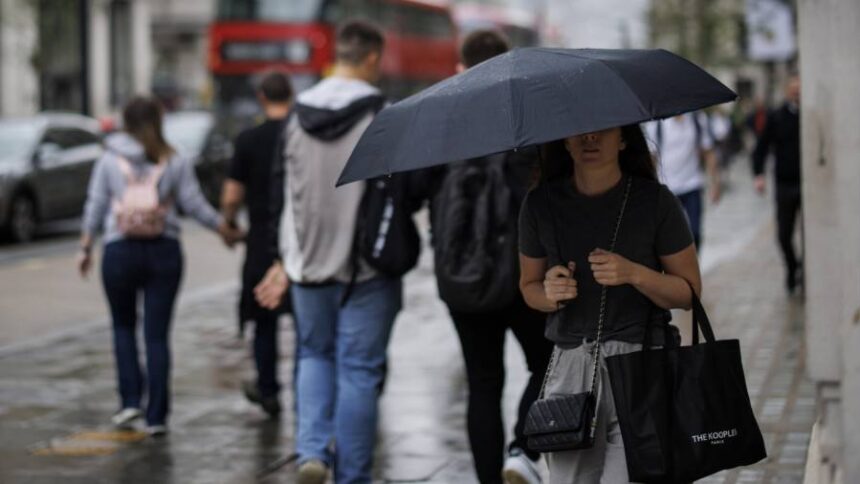Receive free UK economy updates
We’ll send you a myFT Daily Digest email rounding up the latest UK economy news every morning.
The UK economy contracted more than expected in July as unusually wet weather and strikes hit spending and activity.
Gross domestic output dropped by 0.5 per cent between June and July, after growing the previous month, data published by the Office for National Statistics showed on Wednesday. This was a larger drop than the 0.2 per cent fall forecast by economists polled by Reuters.
Services output was down 0.5 per cent in July, with health sector strikes contributing to the fall. Manufacturing production was down by 0.8 per cent, with construction also reporting a decline.
The wet weather was cited by the ONS as a reason for lower output in retail and construction.

In the three months to July, a less volatile measure of economic performance, output was up by 0.2 per cent compared with the previous three months, continuing the weak performance since late 2021.
Darren Morgan, the ONS’s director of economic statistics, said: “In July, industrial action by healthcare workers and teachers negatively impacted services and it was a weaker month for construction and retail due to the poor weather.”
“Manufacturing also fell back following its rebound from the effect of May’s extra Bank Holiday,” he added.
By contrast, a busy schedule of sporting events and a rise in theme park visits provided a slight boost to the economy, the ONS said.
Sterling extended Tuesday’s losses to trade down 0.3 per cent on Wednesday at $1.2446. Investors’ expectations of future interest rate rises have been edging lower in recent days, but traders still expect the Bank of England to lift rates on September 21 to 5.5 per cent. A majority of investors now believe that will be the final rate increase.








